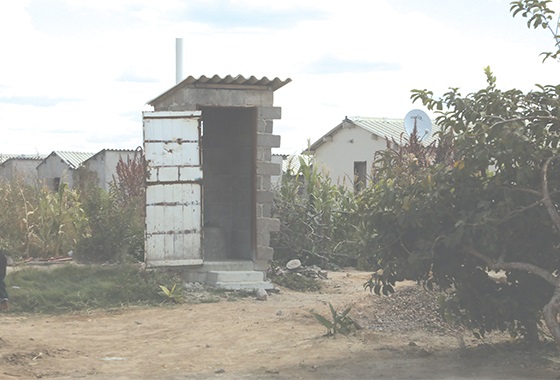Some residents in Pumula say they have resorted to open defecation due to ongoing water supply disruptions that have persisted for several years.
Residents living near Premier High School in Pumula South reported that four streets in their area are particularly affected, and the issue has remained unresolved since around 2006.
These concerns were voiced during a community meeting hosted by Accountability Lab in collaboration with the Bulawayo Progressive Residents Association (BPRA) at Old Pumula Hall on Thursday, where the water crisis in Bulawayo was discussed.
“I am not amused with the treatment that we have been receiving in our area for the past years. I have children that I bore after 2006, who do not know what a flushing system is. Maybe they know how to flush from school but not from home. We all use the bush to relieve ourselves,” narrated Mrs Moyo, a resident.
“I have been to the council offices countless times, but I keep on being tossed from office to office. What irritates me the most is the council has the audacity to bill me every month. I pay US$30 but for what?! I buy water all the time.
“The only time that we ever had running water was when there was a cholera outbreak, but the water was so dirty, because our pipes had collected rust over the years because of staying for too long not functioning. Council people keep coming to these meetings and tell us that they are aware of our plight, what are they aware of when they are not fixing the problem?”
Another resident, who said is a retired employee, bemoaned that she has not had running water from her tap for the past five months and she has to buy water for consumption.
“I earn a meager US$120 a month, yet I have to fork out a dollar a day to buy six buckets of water. As for the bowsers, they come once a fortnight. I can only fetch five buckets at a go. What will I do with five buckets in two weeks? For laundry I have to go to the streams. How long are we going to live like this?” asked another Pumula resident.
Another resident, Mrs Bango said she has installed a Jojo tank in her yard and she buys water every month because the city council water is unavailable.
“Why do we keep paying bills for services that we are not getting? I buy water for $30 to fill up my Jojo tank so that I can have water for the month. But the council still bills me. What are they billing when they are not rendering any services? Honestly I am not motivated to pay my rates anymore because there is no service that I am paying for,” she said.
Chairperson of the Future Water Committee, Cllr Khalazani Ndlovu, acknowledged the residents’ grievances and advised them to approach council offices and have their bills adjusted accordingly.
“There are offices that deal with these issues specifically. If you go there and you were erroneously billed they will adjust accordingly. But we need to be wary that there are other services that we pay for apart from water consumption so those are some of the facts that we must take note of,” she said.
Cllr Sikhululekile Moyo, who was representing the Mayor, lamented that the council is facing a shortage of resources to adequately address the water crisis.
“We do understand your plight. But at the moment the council is only operating on two bowsers. One we have reserved for serving funerals while the other is the one that services communities,” Cllr Moyo said.
“The challenge is there are a lot of areas that need to be serviced. There would be too many requests at one go and sometimes it is overwhelming to attend to everyone at the same time.”
Cllr Moyo further advised the residents to form water kiosk committees that will help to maintain order at alternative water sources so that everyone can get water.

